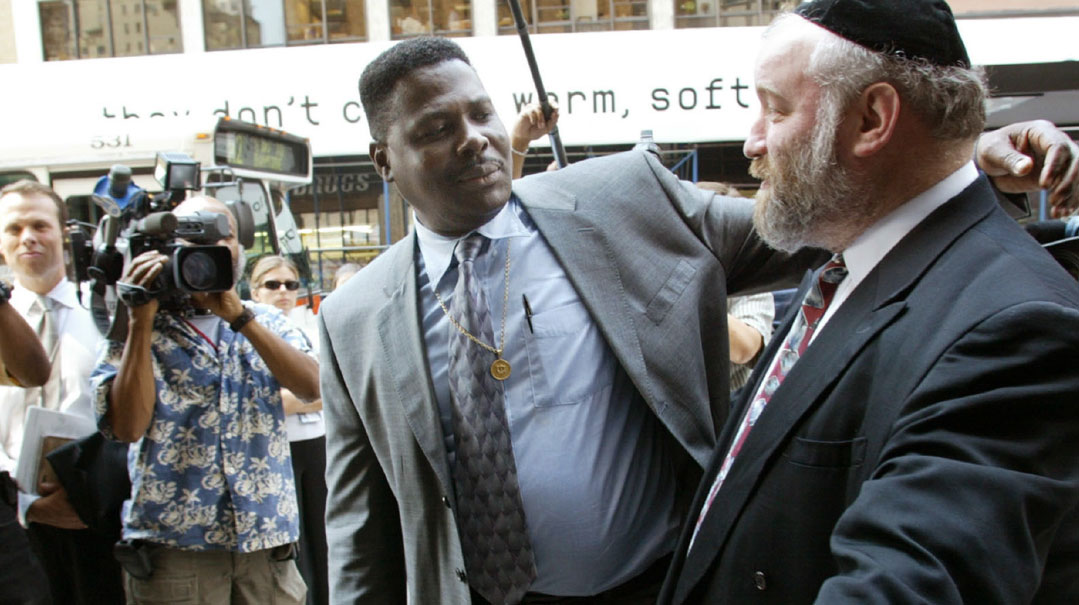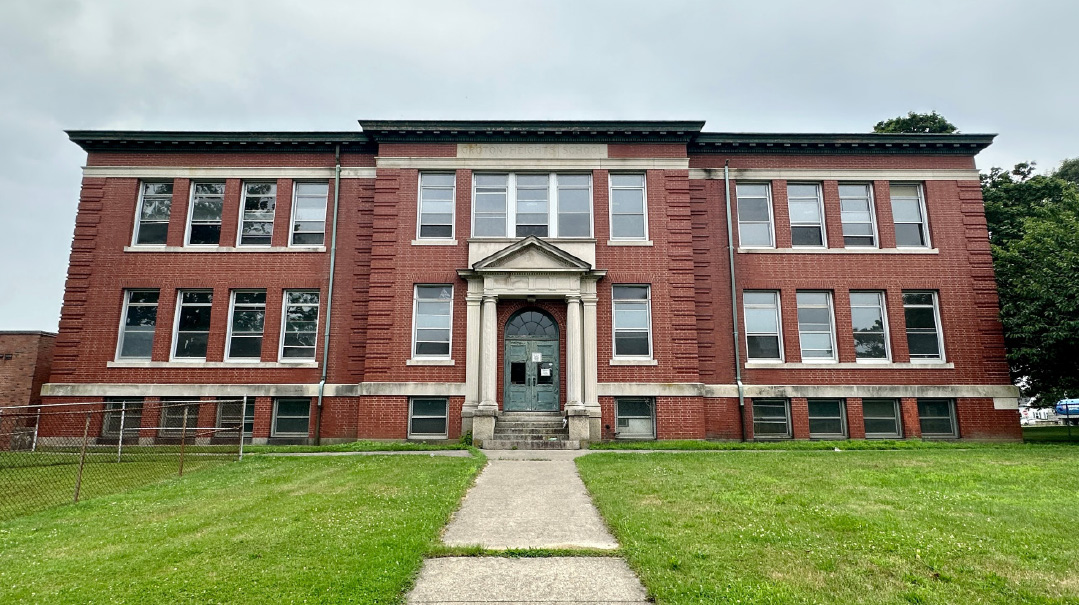Norman Rosenbaum z”l, Keeper of Yankel’s Legacy

“Don’t worry,” the tax lawyer with a young family told his mother. “I will be Yankel’s voice for justice”

Norman Rosenbaum was teaching law on that winter day in 1991 when Professor Moshe Tzvi Reicher came to his classroom with some bad news. “Sit down,” he told Rosenbaum. “Yankel was murdered in a riot.”
It was Aug. 19, and Australia was half a world away from the sweltering streets of Crown Heights, where Norman’s brother, Yankel, 29, had come to perform research for his doctorate. Norman’s reaction was one of disbelief. By the time calls from the media started streaming in, however, he had no doubt the news was accurate. He also had no doubt that his life would change irrevocably.
“It was a horrific contemplation,” Mr. Rosenbaum told me in an interview four years ago, recalling the moment that he learned his brother had been murdered in what would become known as a modern-day pogrom. When the shivah ended, Norman made a promise to his mother, a vow that remained with him for the rest of his life: “Don’t worry,” the tax lawyer with a young family told his mother. “I will be Yankel’s voice for justice.”
In the intervening years, Norman made 250 visits to the United States and sat in countless meetings seeking justice for his brother, Yankel, who was stabbed to death in what became known as the Crown Heights Riots. This past Shabbos, nearly 29 years later, Norman, 63, died in Australia, his mission accomplished. What began as a personal crusade to have his brother’s killer, Lemrick Nelson, punished for his crime, ended in success. Norman’s life came full circle four years ago, when he returned to New York for a meeting with the family of the black child, Gavin Cato, whose accidental death triggered the rampage.
“He was very smart and had a great sense of humor,” recalled Rabbi Shea Hecht, a Chabad writer and radio broadcaster who hosted Norman during his visits. “He got along with everybody. He kept the fire alive for justice for Yankel. If he had not made all those trips — and he paid for them all on his own dime — Lemrick Nelson would never have been convicted.”
A mixed black-Jewish neighborhood, Crown Heights has for many years been considered a cauldron of racial tension. That night of terror in 1991 began as crowds, including many from outside the area, began pouring out of a concert by celebrity guitarist B.B. King. The revelers heard of an accident in which a black child had been killed by a Jewish driver. A group of 20 men spotted Yankel Rosenbaum and shouts erupted of “Kill the Jew!”
The mob, apparently seeking revenge for the death of the boy, surrounded Rosenbaum, who was stabbed five times and had his skull fractured. He died hours later but not before confronting 16-year-old Lemrick Nelson, asking, “Why did you do this to me?”
The events led to four days of rioting, during which Jews cowered in their homes as police stood by. When then-governor Mario Cuomo confronted Mayor David Dinkins on the second day of the riots, asking why they had not been quieted, Dinkins replied that he was allowing black residents to vent their anger.
In an interview several years ago, Norman Rosenbaum told me that this answer was an “intellectually dishonest and dangerous approach.”
“What anger? What was he talking about?” he wondered. “The death of Gavin Cato is a tragedy.”
The riots finally ended after four days, when Gov. Cuomo threatened to call in the National Guard. The New York Police Department was then ordered into action, and brought the rioting to a screeching halt.
But the fight for justice was just getting started. Norman Rosenbaum was determined to have Nelson imprisoned. But city officials were equally determined not to allow the still-smoldering neighborhood to reignite with a trial that would raise racial tensions.
So Norman began traveling to the United States, leading to his relationship with Rabbi Hecht, who chairs the Board of the National Committee for Furtherance of Jewish Education, Chabad’s educational arm.
“His parents asked him not to stay in Crown Heights overnight,” Rabbi Hecht said. “Being 16,000 miles away, they were afraid that something would happen to him. I was a rav in Canarsie at the time, so we gave him a room with us. Over the next ten years he became part of our family. He even came with us one year when we went away for Pesach.”
Nelson was tried three times, and was finally sentenced to a ten-year term in 2003 for violating Yankel Rosenbaum’s civil rights. The first trial, in which Nelson was charged with murder in 1992, was a farce, Rosenbaum once said. A hastily constructed case before a jury of ten blacks and two whites resulted in an acquittal. It didn’t help that there were widespread reports that some of the jurors attended a post-trial celebration hosted by Nelson’s attorneys.
But Rosenbaum did not give up. He came back to the United States again and again, strategizing with prosecutors, lobbying lawmakers from Albany to Washington, and issuing calls for justice through well-attended press conferences. Rudy Giuliani, who parlayed the riots into a successful run for the New York City mayoralty, and Sen. Al D’Amato, became close friends and admirers.
Throughout, the Hechts grew to respect the man with the indomitable spirit, who lived with his Yiddishkeit and would not miss his daily learning or recitation of Tehillim.
“When one door closed, he knocked on another door. When that door closed, he went to a third door,” Rabbi Hecht said. “He had one cause — ‘my brother was killed for being a Jew and government was not there to protect him.’ And people just fell in love with him.”
During one particularly depressing period, Norman was on a plane to Atlanta, and began talking to a gentleman seated next to him. The man said that he’d heard about his brother’s death and was sympathetic. “Listen,” the man said, “these stories always repeat themselves. It’s never a one-shot story.”
Sure enough, a couple of months later, Lemrick Nelson stabbed someone else during a gang fight. Prosecutors seized on that to revive their claims that Nelson was a violent person, not the innocent teen who was caught up in a moment of rage during the riots, as his lawyers claimed at the first trial.
A federal trial in 1997 convicted Nelson of denying Yankel his civil rights — but that sentence was vacated on appeal due to abnormalities in the jury selection process. In a 2003 retrial, Nelson was sentenced to ten years in prison. He served a full term (time spent in jail before his sentencing was counted toward the total) and he was released in 2004.
“Norman, at the end was satisfied that his struggle was successful. But he was upset that only one guy paid the price,” Rabbi Hecht explains. “Yankel had been surrounded by between ten and twenty people when he was stabbed. The fact that the government did not work hard enough to find those people bothered him tremendously. We should’ve had more information.”
“But if not for Norman,” he added, “the district attorney never would have done his job, the FBI would have never done their job, and the justice system would never have done their job.”
Born in Australia to Max and Fay Rosenbaum, Norman was Yankel’s only sibling. His father and wife Ettie died several years ago, and he is survived by four children and several grandchildren.
“When Jews lose a fight in the street,” Rabbi Hecht said, “they say, ‘I’m going to get you in court.’ But in the 1991 riots, we lost on the street, and then we went to the courts and we lost in court. That was a terrible blow. Norman was an import from Australia — but he vindicated us.”
(Originally featured in Mishpacha, Issue 821)
Oops! We could not locate your form.












